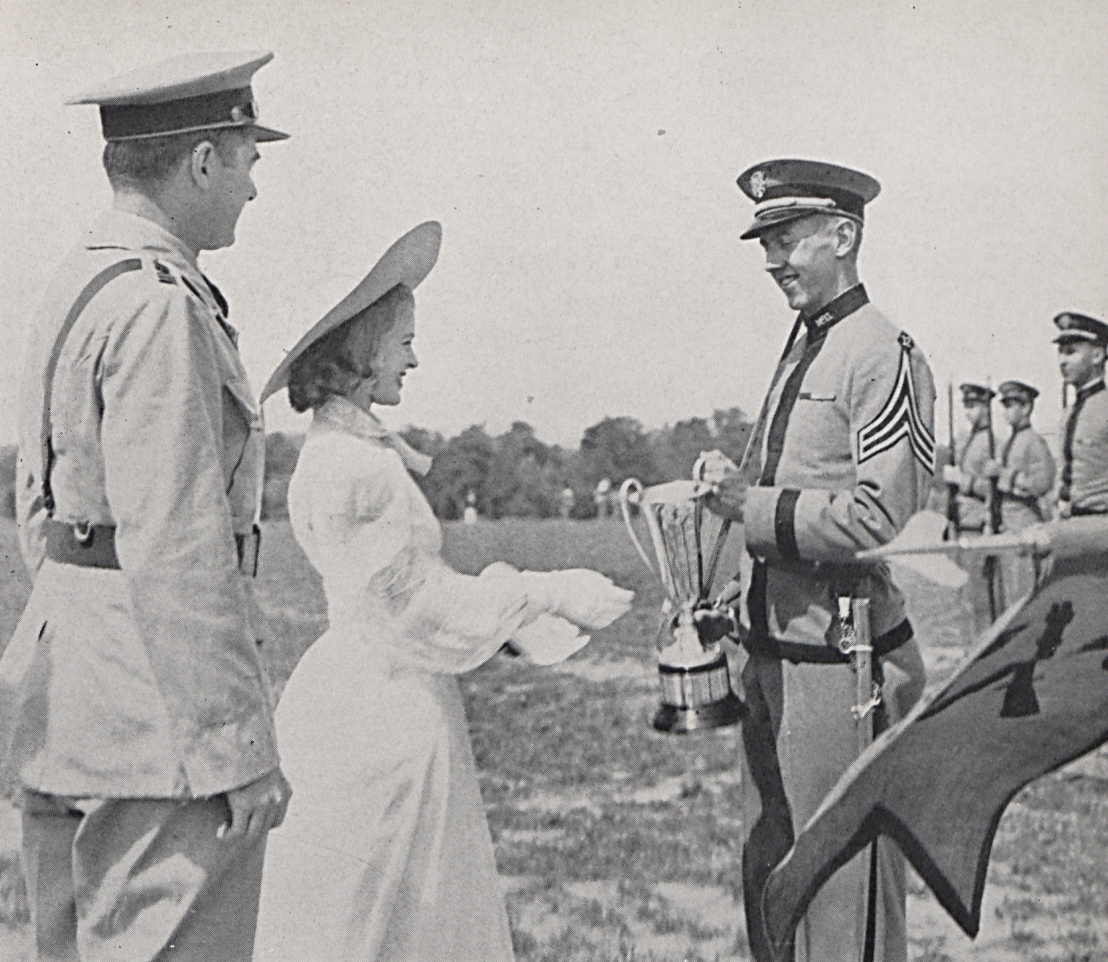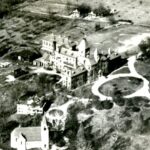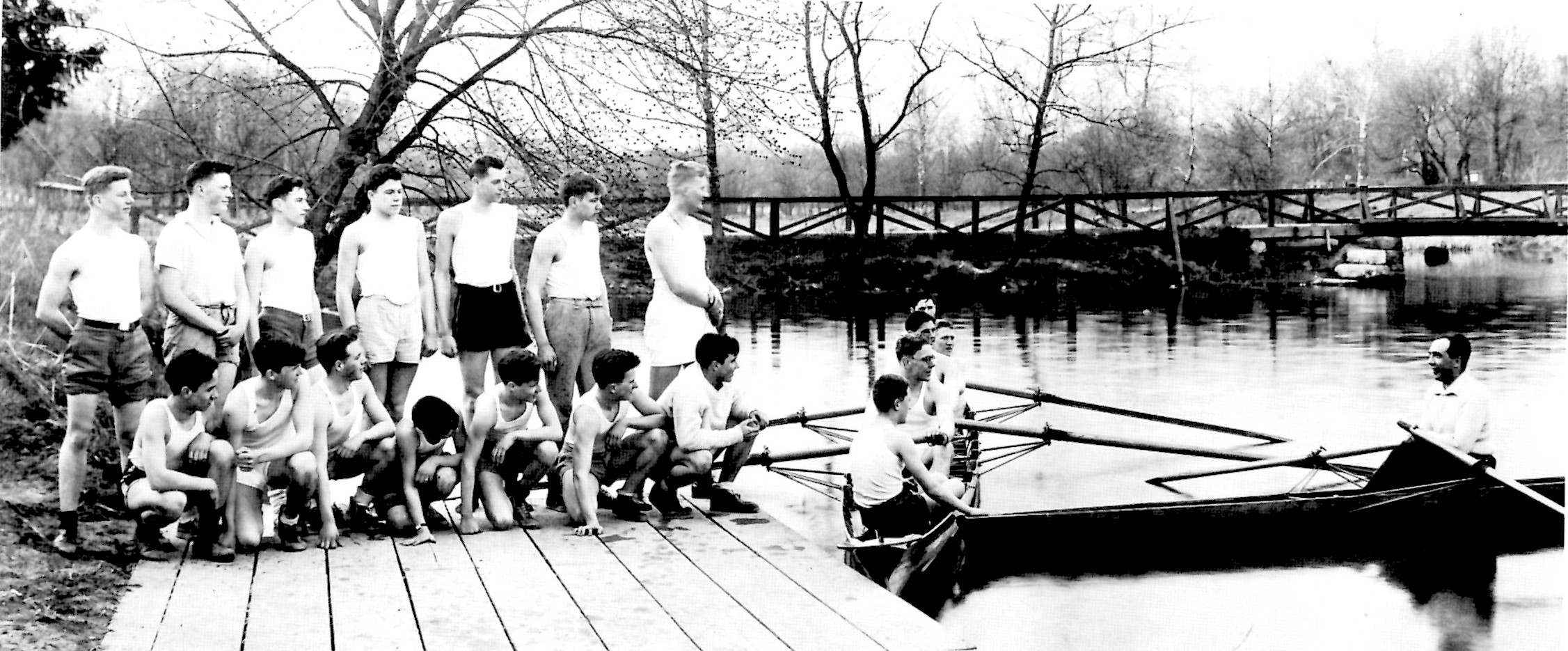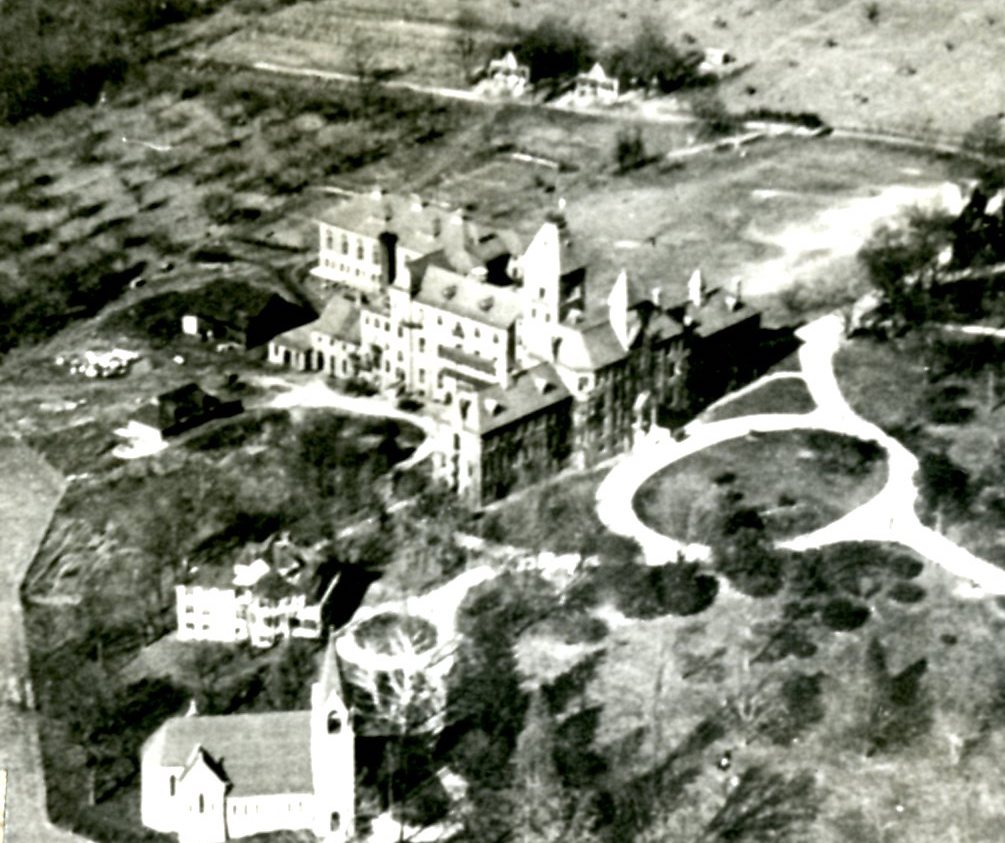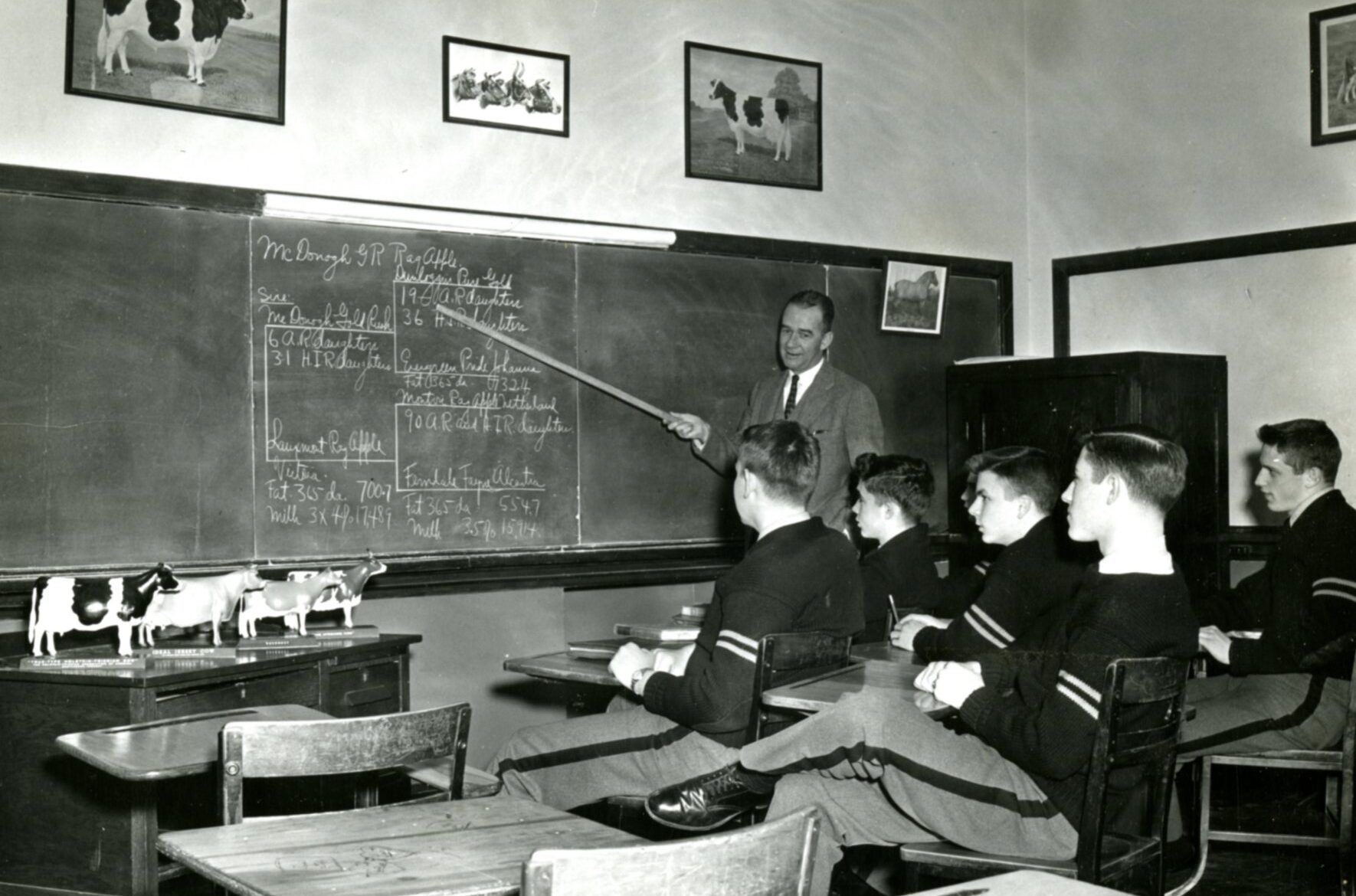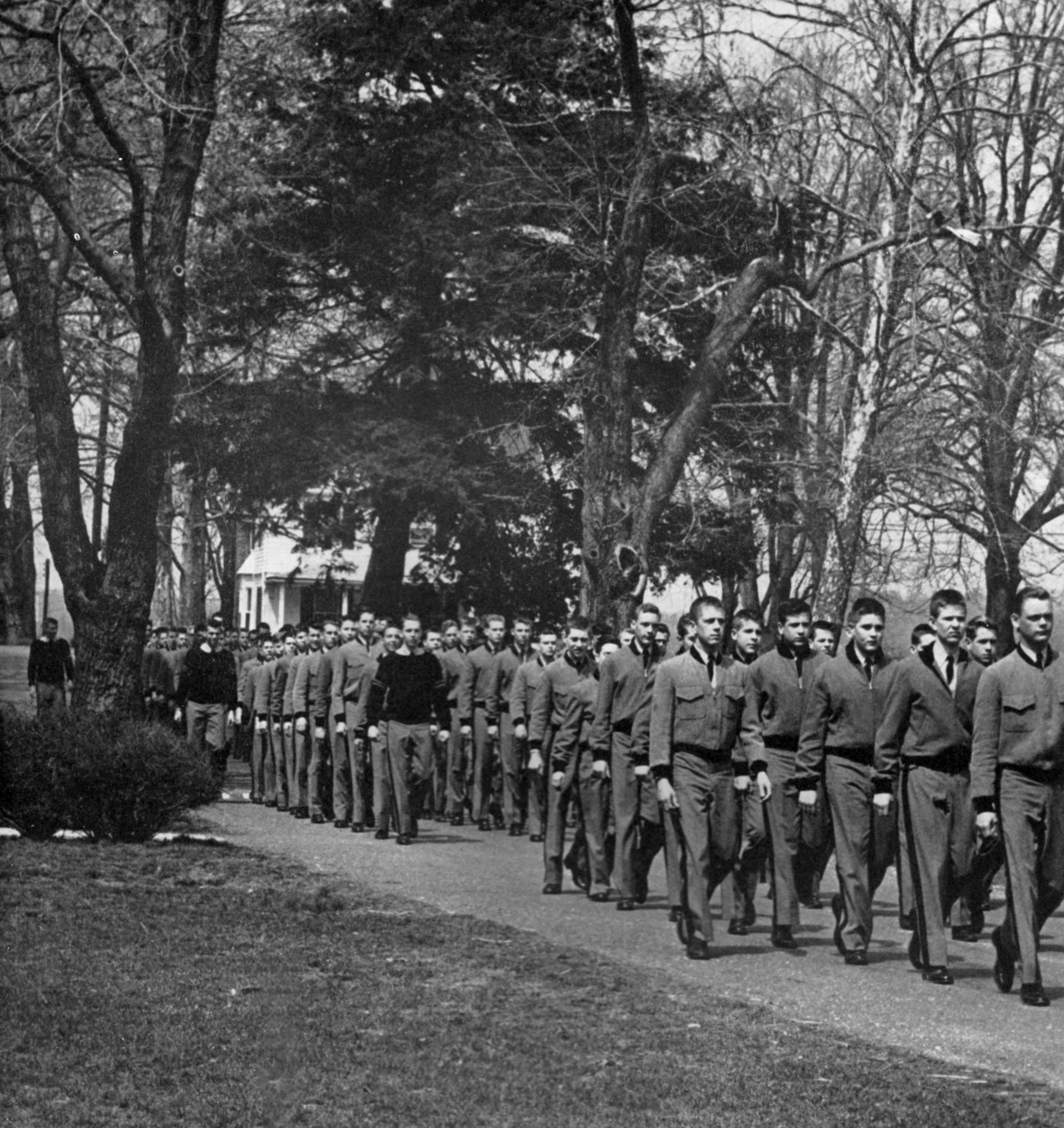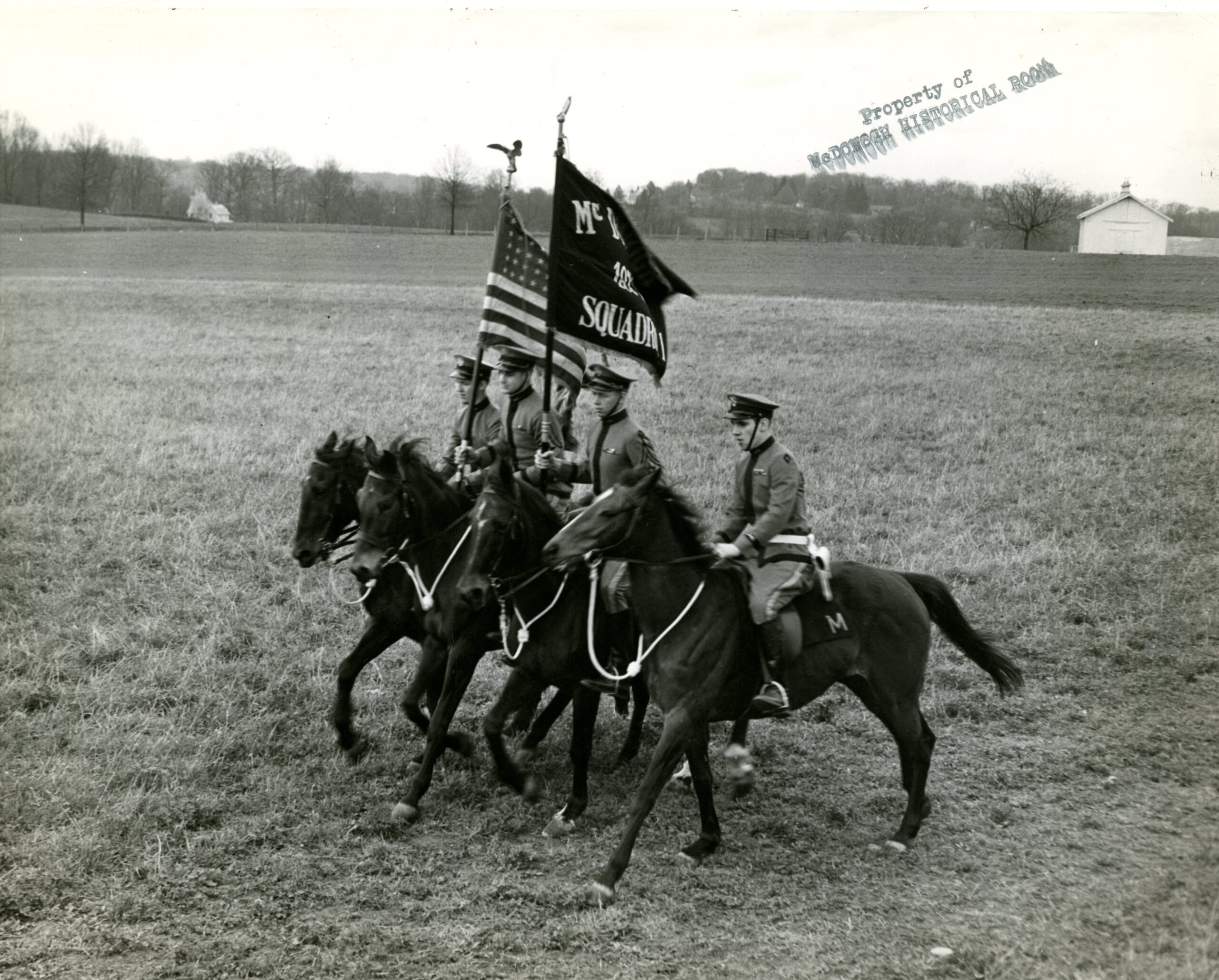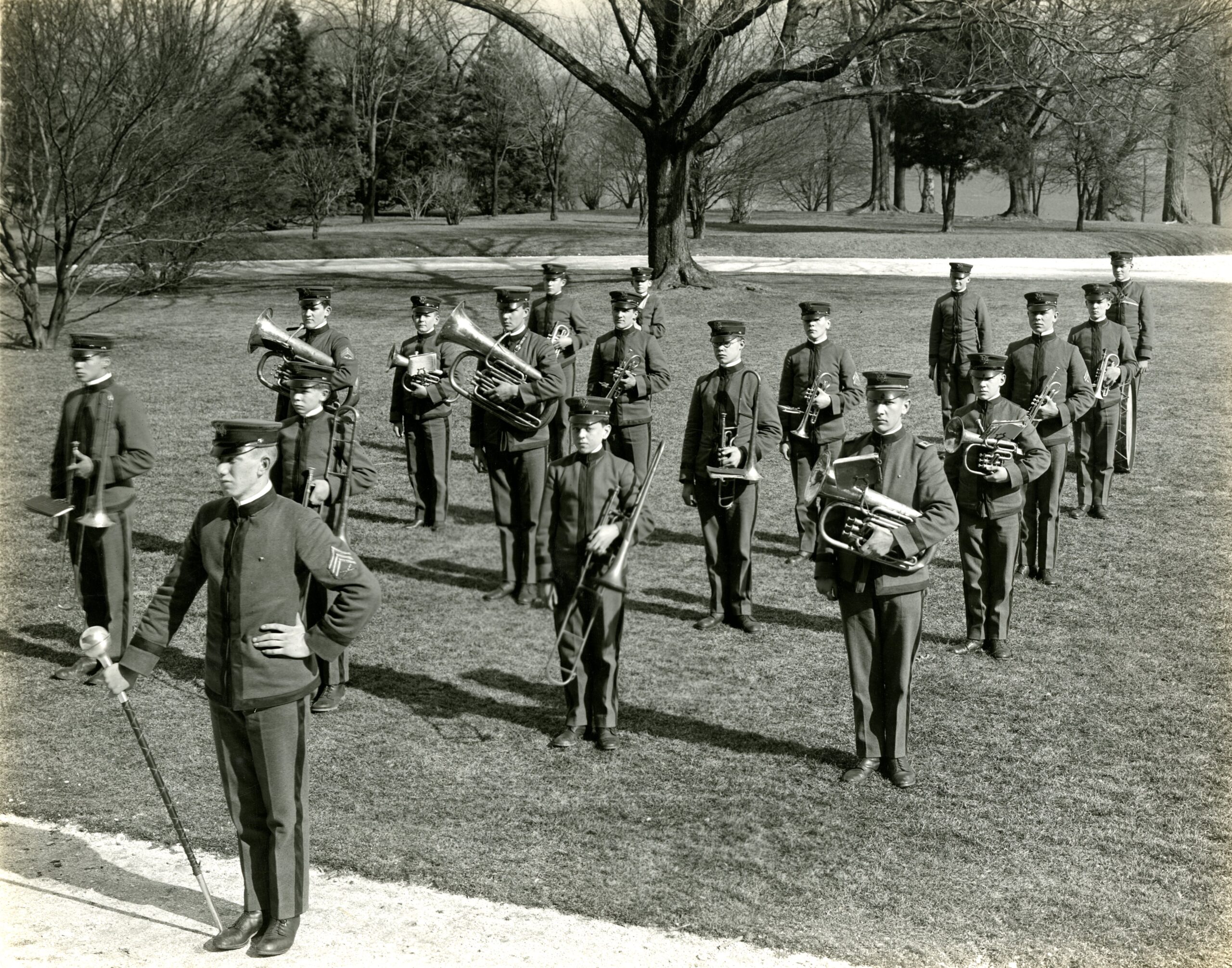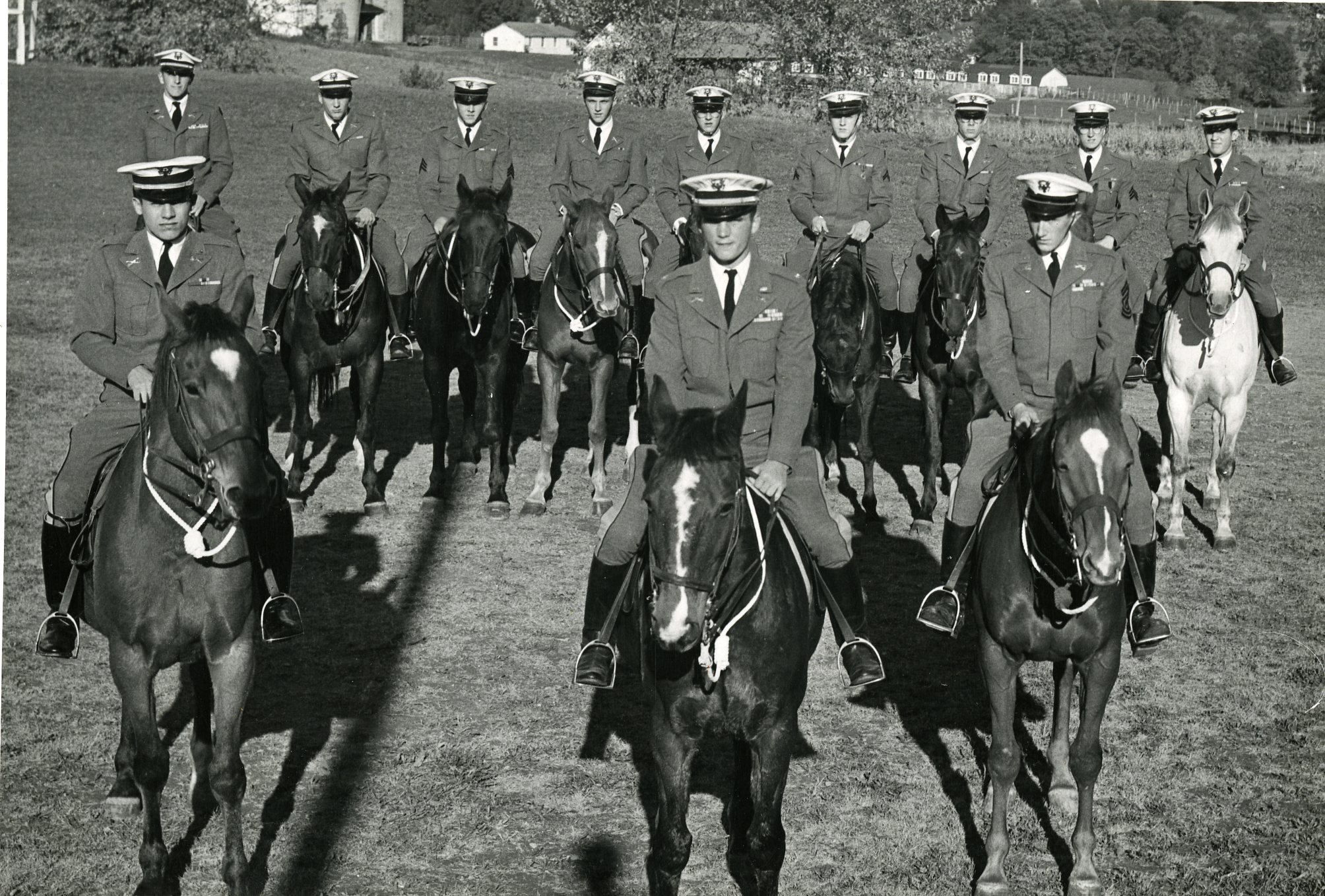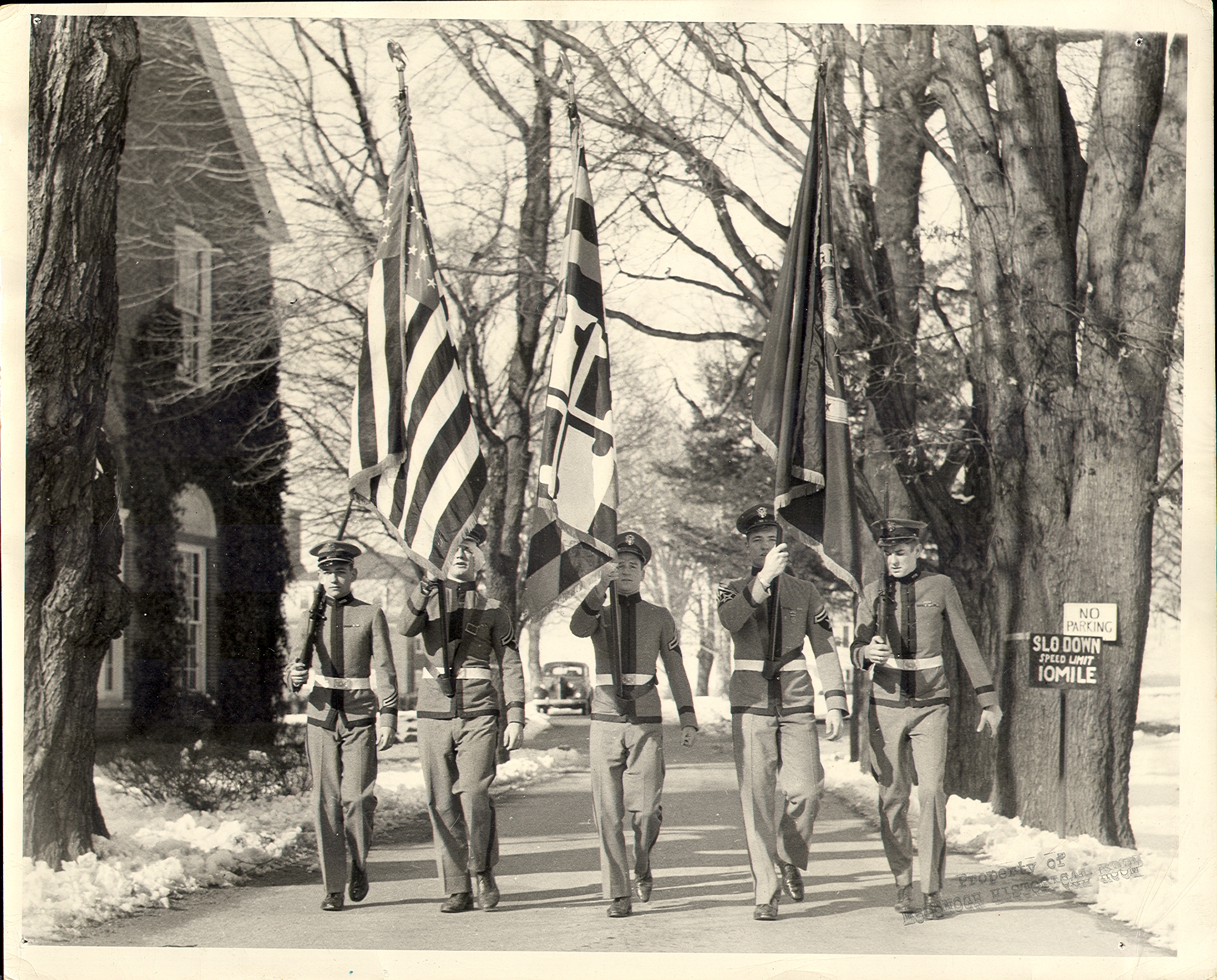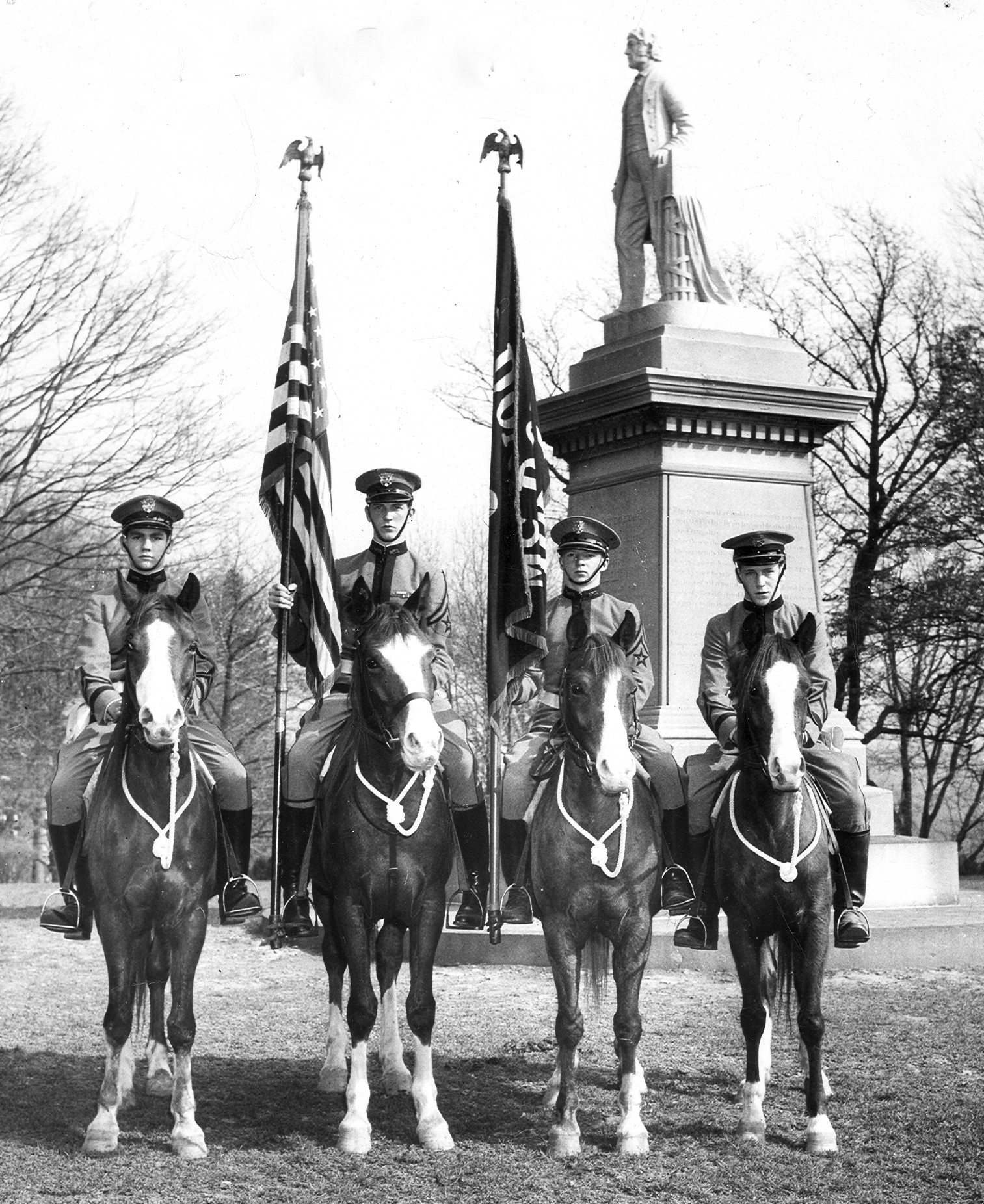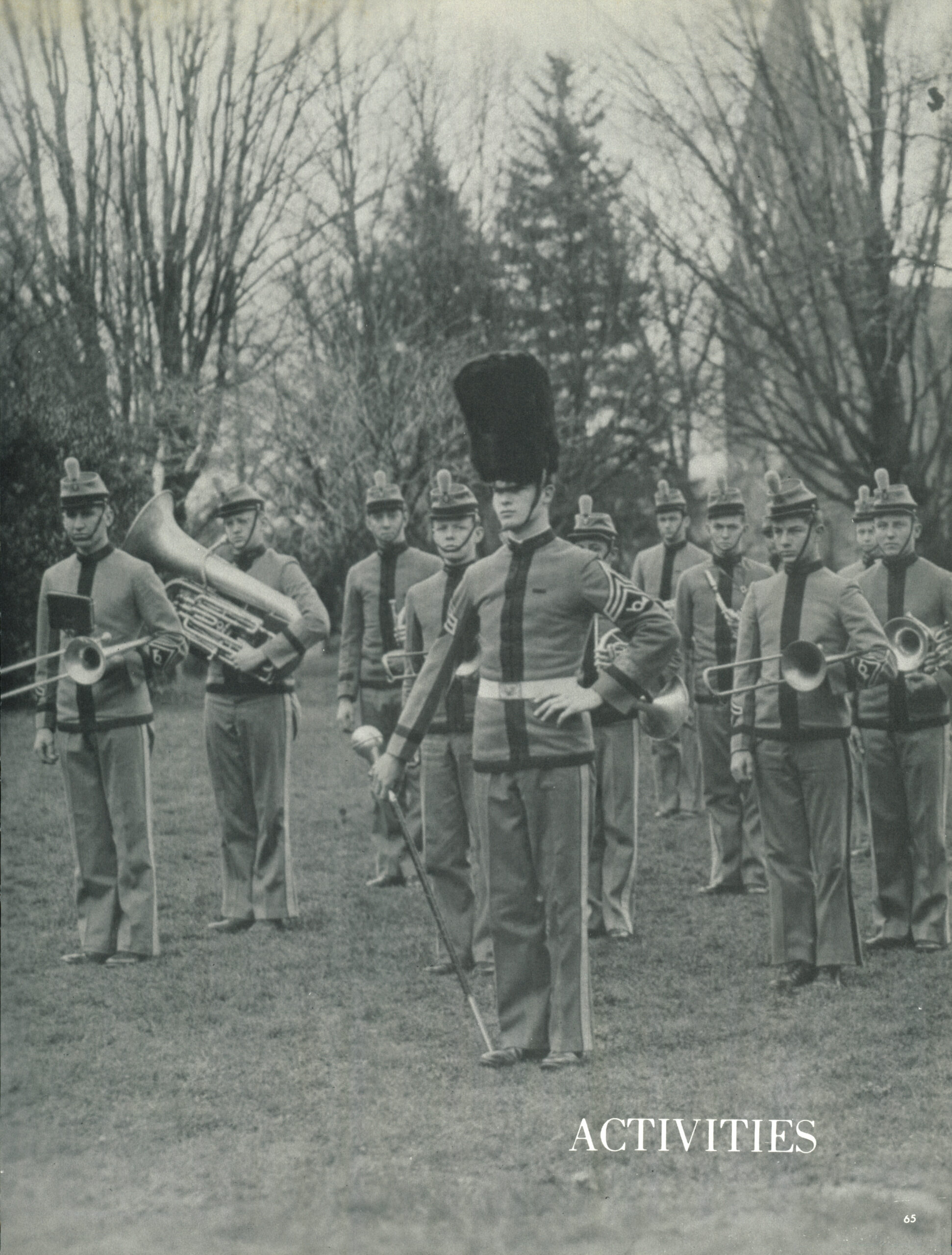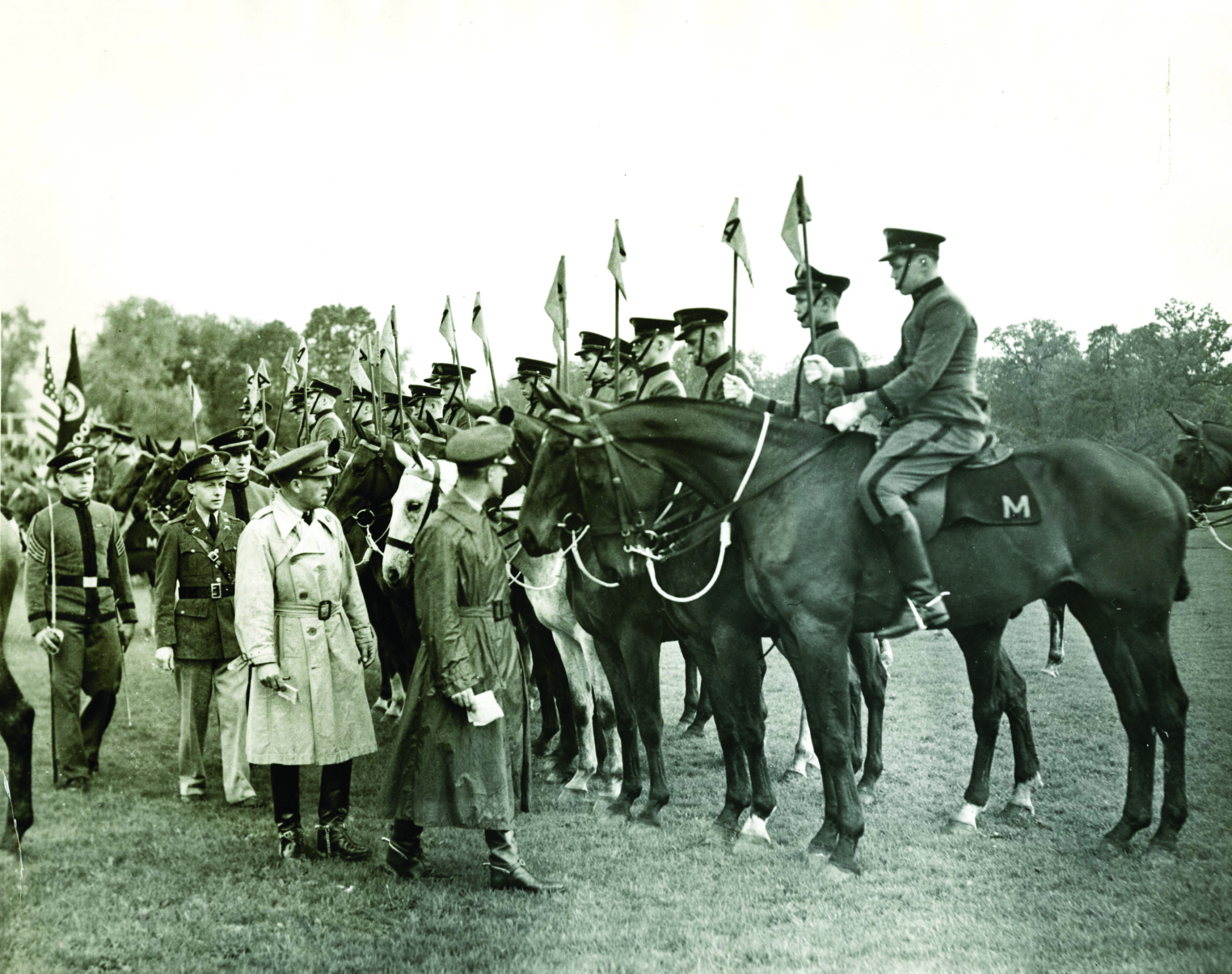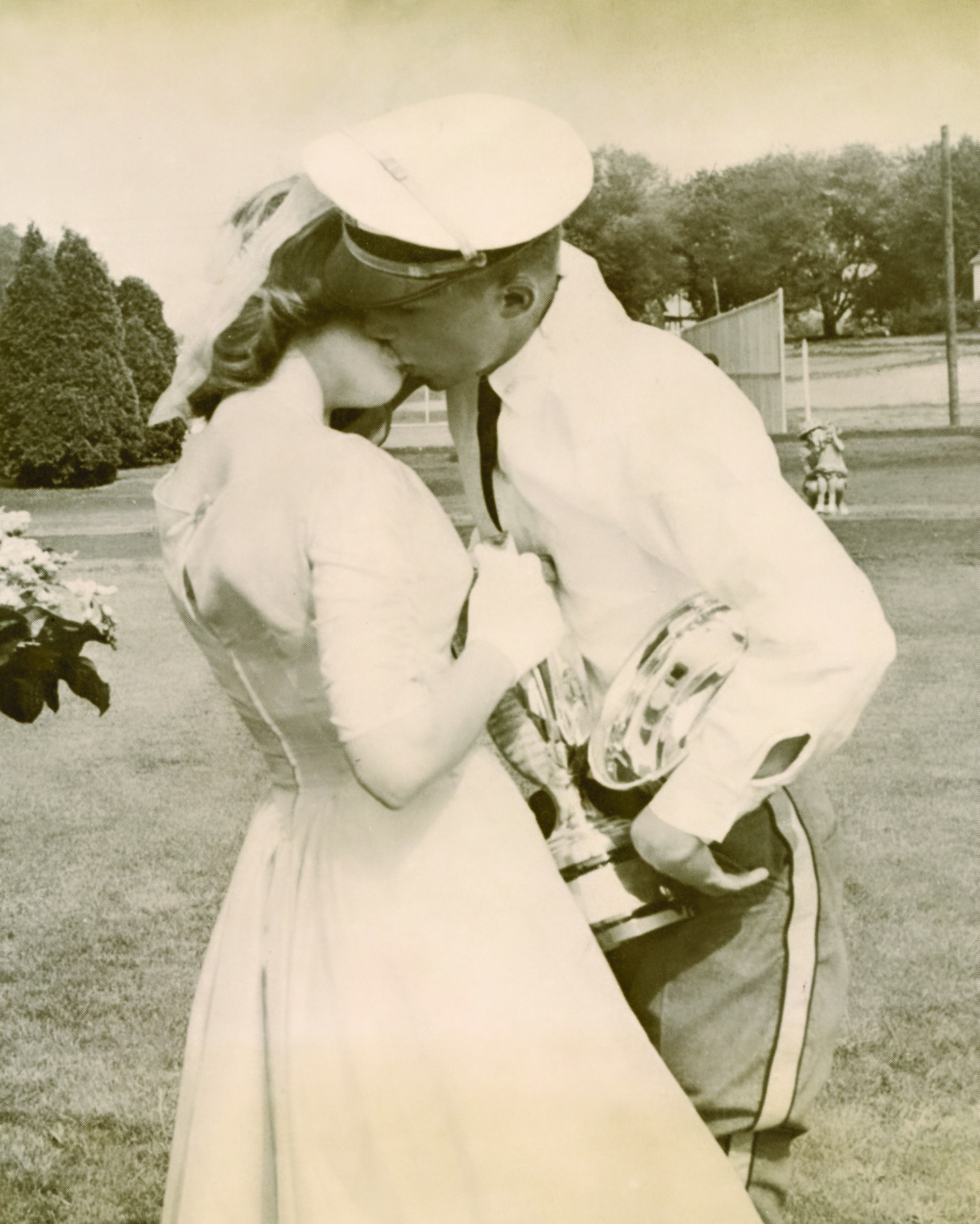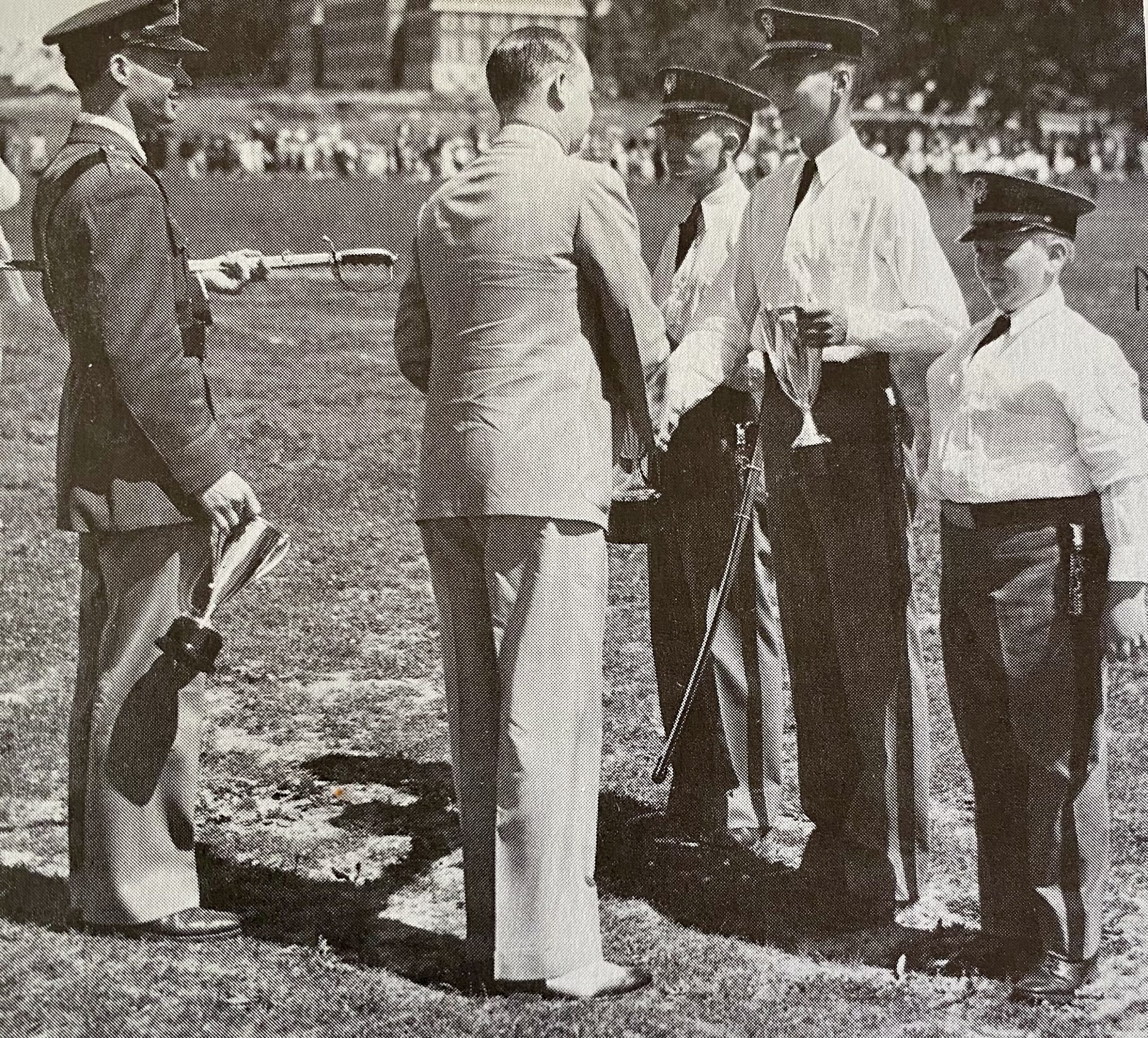During the military era, Monday afternoons were set aside for preparation for the Competitive Drill — the culmination of the year’s military effort. The year began with an officer training school in September. From fall to spring, cadets were taught the fundamentals of close-order drill, the manual Springfield of arms, and military discipline and courtesy. During the drill, the older cadets carried rifles issued by the U. S. Government. When not in use, the rifles were kept in the dormitories, and each cadet was responsible for the care and cleaning of his piece.
For many years, the Cadet Corps was divided into five main units: the First, Second, and Third Infantry Battalions, the Band, and the Cavalry. In later years, competitive drills also took place between the day and boarder companies of each battalion, and between the platoons of the Cavalry.
An article in the 1969 edition of The Legacy explained, “Led by the officers, the individual companies practice foot drills and the manual of arms, hoping to achieve maximum precision. On the annual Competitive Drill Day, the rival infantry companies and cavalry platoons compete against each other, hoping to win the coveted awards.”
The drill was judged by Army Reserve officers, and the victorious company commanders received celebratory kisses and congratulations from girls (usually a relative or friend) who were part of the ceremony.
A 1965 Legacy story described the importance of the annual exercise: “When Competitive Drill is over, the underclassmen think to the year ahead, but the senior looks to all the years behind. This day is the culmination of his McDonogh military experience. And, reflecting, he knows the advantages which he has gained and which are a part of him. He also knows that there could be no more efficient method of developing discipline and maturity.”
